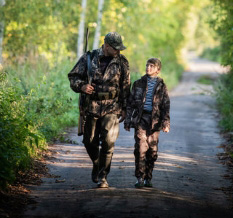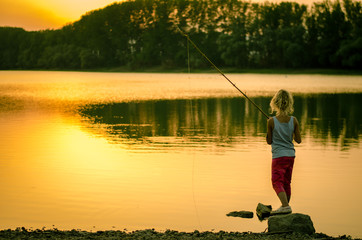Partnership Promotes Nature Education Through Hunting
According to the latest available data during July 2021 through December 2023, 50.4% of teenagers ages 12–17 had spent 4 hours or more of daily screen time. Another study, led by faculty at the Yale Department of Psychiatry and Columbia School of Nursing, has found that youth who spent the most time on their digital technology were statistically more likely to experience specific changes in brain development and exhibit higher levels of internalizing problems include depression, anxiety, social anxiety, somatic complaints, and other concerns. In stark contrast, the benefits of getting youth outdoors include reducing anxiety, depression, stress hormones, blood pressure, and nervous system arousal and improving immune system function, self-esteem, and overall well-being.

But in the midst of increased screen time amongst our youth, something else — something more hopeful — is also arising. In the overlooked corners of our tech saturated societies, the seeds of getting our youth away from screens and outdoors are being successfully planted.
Denmark is one such success story. In Denmark, getting kids outdoors is deeply ingrained in culture and education. Denmark has successfully incorporated hunting and sport-fishing into their schools’ classrooms. It is common for students to get outdoors and participate in field to fork programs where students are afforded the opportunity to harvest, butcher and cook wild game and fish. Experiences such as these provide students the physical and mental benefits of getting outdoors, while learning about natural resources, and reflecting on topics, such as life and death, origin of food, and their own place in nature. However, this opportunity is far from a given in other European countries. In Germany, educators are highly discouraged or outright denied affording their students the opportunity to learn about hunting or sports-fishing. In Poland, children under eighteen are not allowed to participate in hunting. In the UK, there is also little social approval of hunting.

Because of Denmark’s successful integration of hunting and sport-fishing into education, SCI Denmark is leading the charge to educate other European countries on the subject by hosting the Kids in Nature conference. The conference will be held at the Brahetrolleborg Castle in Faaborg, Denmark, August 22-24, 2025. SCI Foundation has contributed funds towards executing the conference, and Laurine Wolf, SCIF’s Deputy Director of Education and Humanitarian Services, will be a presenter. The purpose of the conference is to inspire others to get kids in nature, share professional knowledge and education materials, and create a pan-European network of professionals committed to getting kids in nature and participating in sustainable harvesting of nature’s surplus.
The conference is intended for anyone interested in the subject, regardless of whether they approve of hunting. Participants will include delegates from NGOs, politicians and opinion makers, media, and hunting organizations from across Europe. Many delegates have already received invites, but the conference is open to all (numbers limited). Registration deadline is July 15, 2025. Register or learn more about the Kids in Nature Conference here.

